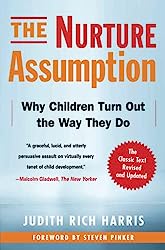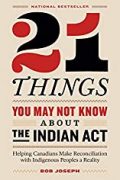
Rating: 7.4/10.
The Nurture Assumption: Why Children Turn Out the Way They Do by Judith Rich Harris
Book about parenting, arguing for the thesis that parents essentially have no effect on how children turn out. Except in cases of extremely severe abuse, parents have no effect on children, after accounting for factors like genetics. Culture is not passed down from parent to child, but instead from older children to younger children. This explains why children who grow up in a country but have immigrant parents adopt all the local native customs and speak the native language without an accent and lose all traces of the originating country.
The author first examines a bunch of studies about how parents supposedly affect children, and concludes that parenting has no consistent effect. All of them can be explained by genetic factors passed down from parents, and after accounting for these, the effect of parenting is never higher than chance. In many studies, it is not clear which way the causation goes because it is not the parenting that determines the child’s personality; instead, the child has a fixed personality determined at birth, which affects how the parents treat the child. They examined many correlations in studies, such as the effects of birth order, parents’ marital status, or whether their parents worked or not, and in all of these cases, there was no consistent effect on how the child turns out.
Children often have a “split personality” inside the house compared to the outside world, when the parents aren’t around. When examining the effects of birth order, they find effects within the home, such as the first child naturally being older and more dominant over the younger child, but these effects disappear when children are outside the home. In the outside world, children strive to appear normal and avoid letting their peers know that anything is unusual within their household, and they make great efforts to fit in.
The book then delves into various theories from evolutionary psychology as to why children follow their peer groups. Human brains have evolved to expect living in nomadic groups without many strangers, so we are naturally programmed to differentiate between the ingroup and outgroup, where the outgroup consists of strangers and we are inclined to antagonize them. As a result, we naturally organize ourselves into groups with an us-vs-them mentality. Even if the initial formation of a group is based on arbitrary criteria, children are driven to recognize shared traits and naturally form some sort of group, and once organized into a group, children are influenced by the group’s norms and strive to fit in. The oldest or most authoritative child in the group sets an example for the rest of the group to follow.
An interesting example was when a human child and a chimpanzee were raised in the same house to determine if the chimpanzee could behave like a human when raised in a human environment. However, what happened was that the chimpanzee matured more quickly and started to influence the human baby much more than the other way around. As humans are naturally inclined to follow older children, the human baby learned to copy the chimpanzee’s behaviors. At that point, the parents ended the experiment, and the chimpanzee was returned to the zoo.
The book’s conclusion is that parents have very limited influence on how their children develop. But parents have a bit of impact in indirect ways, the most significant way is choosing the peer group for your child, whether by moving to a neighborhood with a desirable peer group or making changes if the current peer group is unfavorable. Parents can also teach specific skills at home that children may not learn elsewhere, such as their native immigrant language or playing the piano. Another thing is making sure the child is as “normal” as possible (eg: in terms of name, clothing, and food choices) to avoid deviating from the norm, which is universally bad and can only negatively affect their status in the peer group and potentially lead to bullying. This conclusion is perhaps liberating, implying is no way to mess up parenting, but it’s also nihilist in implying that parents have almost no impact on their children beyond predetermined genetic factors.
Overall, although the book presents an interesting perspective, it is heavily one-sided. There are numerous theories about parenting and child development, and the author’s thesis is far from universally accepted, so it is controversial and deviates from mainstream scientific consensus. It is challenging in psychology to disentangle causation from correlation, which contributes to experts’ lack of agreement. Another criticism is the author takes a lot of words to make her point, especially in the second half, where it goes into tangential topics and I skimmed several chapters near the end.



